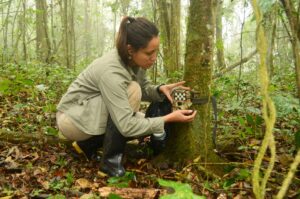How can we help the growth of research from LMICs?
In the early 2000s, when Research4Life was founded, UN Secretary General Kofi Annan announced an initiative to “bridge the digital divide” in the world’s poorest countries through public-private partnerships. Various studies show that the amount of research and researchers from lower and middle income countries (LMICs) has grown since then, however, studies show that progress is uneven.
Where data is lacking, slowly but surely, academics in LMICs are beginning to tell their own stories. From a wonderful recent study by a team that includes Dr. Richard Bruce Lamptey, one of the Research4Life Country Connectors, that compiled innovations used by 26 University educators in Ghana, Kenya and Nigeria, to Sonam Wangdi’s assessment of the state of research in Bhutan, the evidence is there but just needs to be documented.
Altmetric data identifies Global South research
The publisher Taylor & Francis, who is one of Research4Life’s 200 publisher partners, dove into Altmetric data, to try and learn more about what impact that that publisher had in supporting researchers from the Global South. Altmetric monitors the reach of research through online interactions, so everything from mentions in the press to mentions in intergovernmental policy papers gets recognized and sorted. They found many mentions of research from researchers in the Global South, and chose five that stood out and were mentioned in policy papers from organizations such as the World Health Organization (WHO), the Brookings Institution, and the Food and Agriculture Organization of the United Nations (FAO).
Part of telling these stories is to reframe the narrative, in order to understand the importance of having researchers be from the countries and populations being researched. Sometimes, the places we find answers to global problems may be unexpected; a multidisciplinary approach is key.
In their search for research that has impacted policy, they came across a recent policy document from the WHO “A guide to tailoring health programmes: using behavioural and cultural insights to tailor health policies, services and communications to the needs and circumstances of people and communities”; this study actually cited a book on arts research. The book “Arts-Based Methods for Decolonising Participatory Research” was referred to as a source of guidance on research methods “appropriate for behavioural and cultural insights.”
Exploring participatory research
They explain why this book, with its exploration into the concept of “participatory research”, was such a significant influence on the WHO policy document: “The editors Tiina Seppälä, Melanie Sarantou, Satu Miettinen explain in their introduction what participatory research looks like: (it is) ‘research that supports the perspectives, needs and interests of the research participants in their place-based and cultural contexts.’ They continue: ‘Decolonising design, through practices and thinking, seeks to question dominant narratives and relationships of power that perpetuate delocalised and disembodied perspectives of the Global North/West and eliminate other ways of knowing.’”
“They refer to the writings of Kenyan author and academic Ngũgĩ Wa Thiong’o in order to explain how art can be used to work towards this decolonization: ‘fiction, drama and poetry (are used) as ways to reconnect with broken roots of the past: first, by looking at the past critically and, second, by helping build healthy societies.’”
Organizations can help increase participation of researchers from LMICs by reflecting, and making change, to help give them more opportunities and visibility, at every opportunity. In their article “Equity in climate scholarship: a manifesto for action” E.F. Lisa Schipper et. al. were moved to action, when a list of 1000 climate change scholars failed to include a single institution in Africa outside of South Africa. They were moved to create a manifesto for action to make sure this sort of exclusion does not happen ever again.
Closing the gap for Global South researchers
They give a list of recommendations for scholars and journals to close the gap for researchers from the Global South. The recommendations include: actively citing female scholars, and scholars from the Global South, citing across disciplines, diversifying Editorial Board and reviewers, encouraging submissions from Global South authors, expediting reviews where necessary for authors from under-represented backgrounds, waiving publishing fees for authors from the Global South, making double-blind reviewing standard, offering free journal access to institutions in the Global South and lastly providing support to Global South authors.
Learn how Research4Life supports researchers in LMICs.
Read about the new Research4Life Equity Committee we’ve established, which intends to bring about a transformative change in the representation and participation of researchers from lower and middle income countries.






